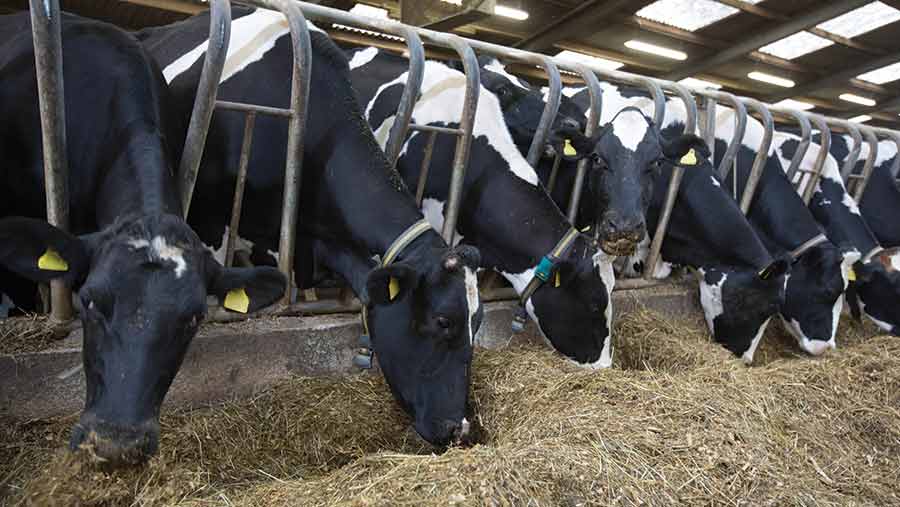Dairy farmers urged to avoid ‘cure-all’ mineral overspend
 © Tim Scrivener
© Tim Scrivener Dairy farmers are warned to be wary of claims by some feed supplement suppliers selling overpriced mineral and vitamin products.
Dairy nutrition consultant Hefin Richards of Profeed Nutrition Consultancy tells Farmers Weekly some suppliers continue to mislead dairy farmers with claims a mineral and vitamin supplement can solve issues such as fertility and mastitis because “it contains X, Y and Z”.
One case flagged by Mr Richards saw a farmer pay an “eye-watering” £1,100/t for a product to improve fertility when the same specification was available through another supplier at £600/t.
“This in itself represented a saving of 7.5p a cow a day or nearly £5,000/year,” he says.
“More worryingly, the product in question took no account of the forage base and diet being fed at the time and was consequently not even a good fit with the ration.
“Mineral and vitamin supplements have often been sold as a cure-all for many performance issues seen on farms,” says Mr Richards.
Hefin Richards’ tips on cutting ration costs
- Work with reputable suppliers that take a structured and logical approach, rather than buying from someone who arrives on the yard selling a dream
- Look at cost/day. If this seems too high, look at price/t and levels fed, review specifications and get comparable quotes
- Review the total supplementation regime periodically to ensure your strategy is fit for purpose
- Avoid double or triple dosing by looking at total mineral supplementation sources
- If minerals are fed in the TMR, look at using an unmineralised compound or blend in parlour
- The aim must be to feed the correct level to meet the needs of the herd at a realistic cost
“Fertility is probably the number-one issue, and in my experience only a small proportion of fertility problem are linked to mineral nutrition.
“Many off-the-shelf products that are widely used do not reflect current requirements where forage base and levels and types of supplementary feeds has changed. There is often a belief that more is always better and myths about the effect of ever-increasing levels of phosphorus and copper in improving fertility still circulate and are used to drive sales to unwitting buyers.”
Essential or non-essential?
Farmers should select a “sensibly formulated product” that takes into account forage base, production level targeted and reflects the total supply being consumed by the animal, he says.
“The key is to be sure levels within a product are in line with the levels used in trial data and not just added in minute amounts in order to get listed on the product label, giving the perception of high quality and therefore justifying a higher cost.
“Biotin fed at 20mg/day has been shown to improve hoof condition over time. The issue arises where products containing half this level are sold as the ‘solution to lameness’.”
See also: Are your cows getting the correct minerals?
“The underlying issue may be excessive standing times, lack of suitable foot-bathing protocols or ineffective/infrequent trimming routines, so while the correct amount of biotin may have a minor effect, the problem will most certainly not be solved,” says Mr Richards.
Dairy farmers looking to improve fertility, for example, could instead focus on bettering transition cow management, energy status at the time of service, diet consistency, heat detection, underlying cow health and service technique, he says.
Such actions are far more likely to lead to significant improvements than introducing an expensive new mineral to the mix, he says.
